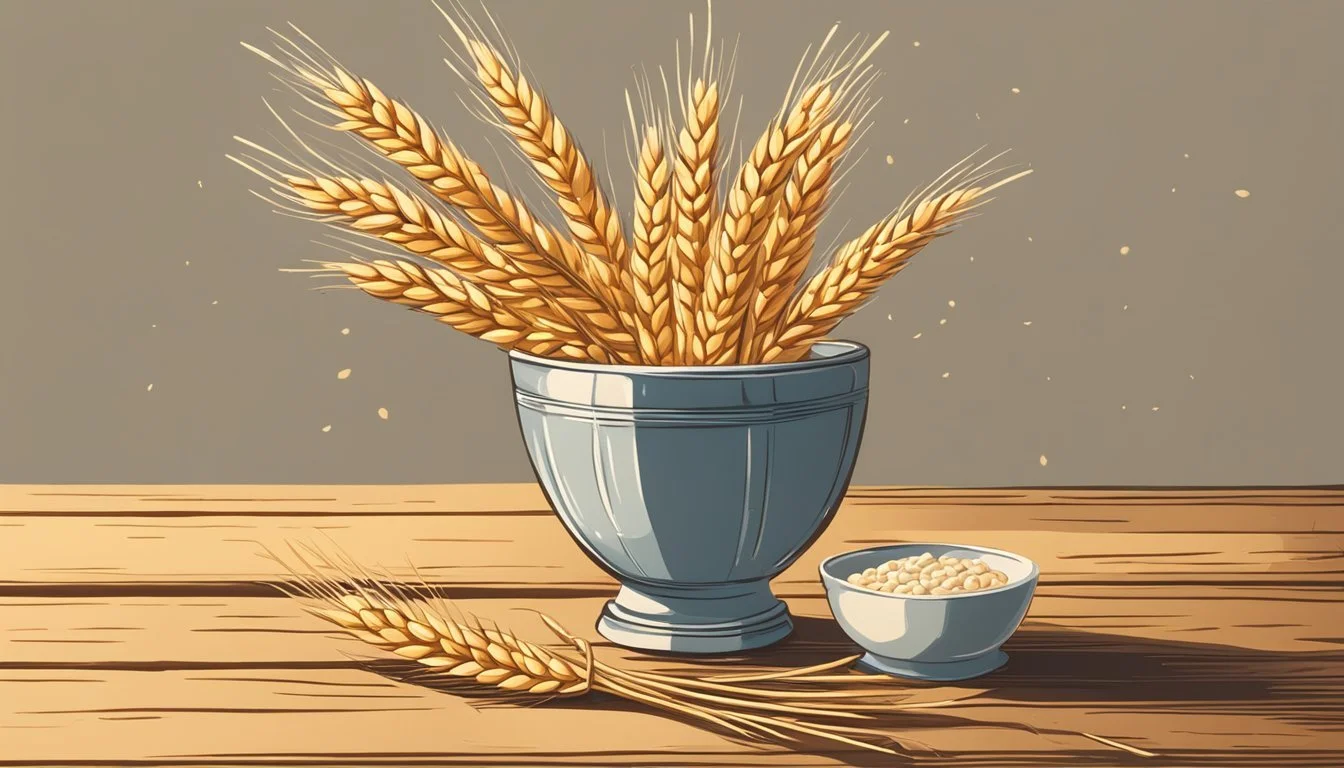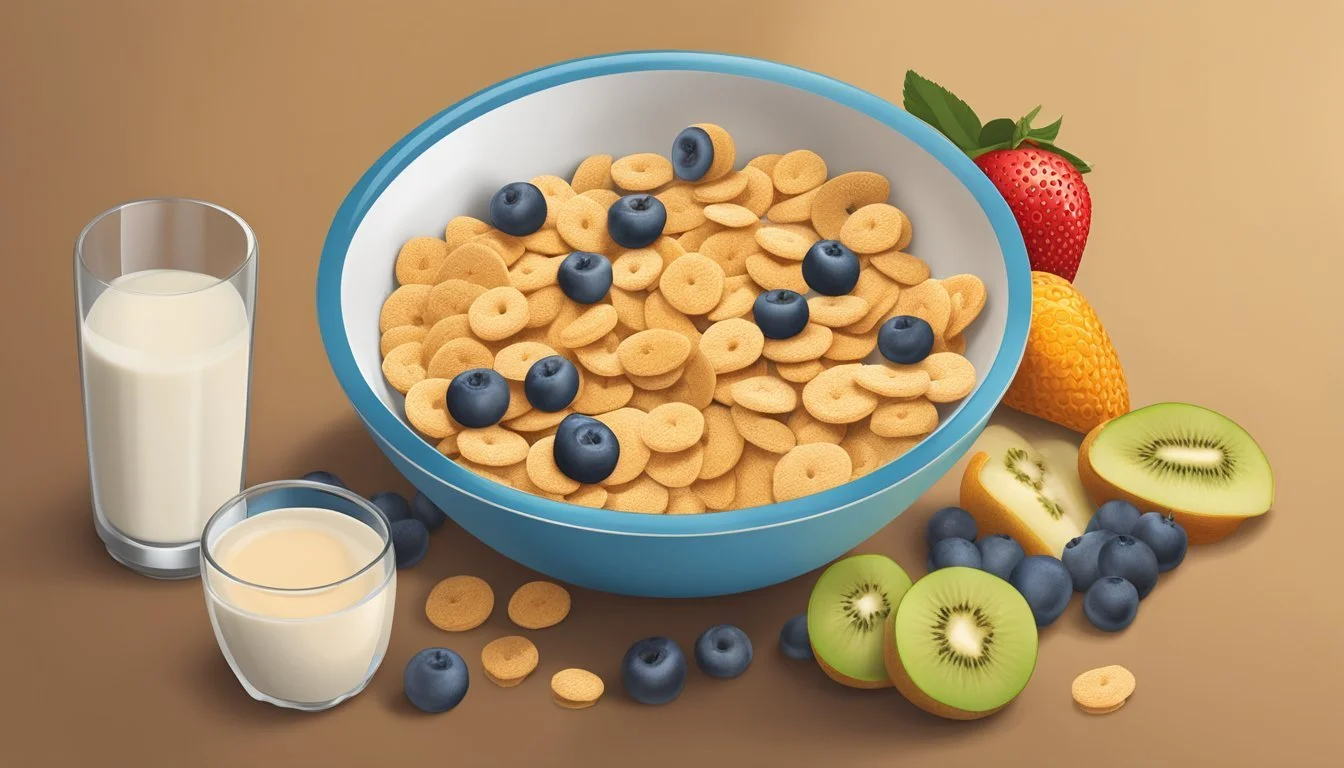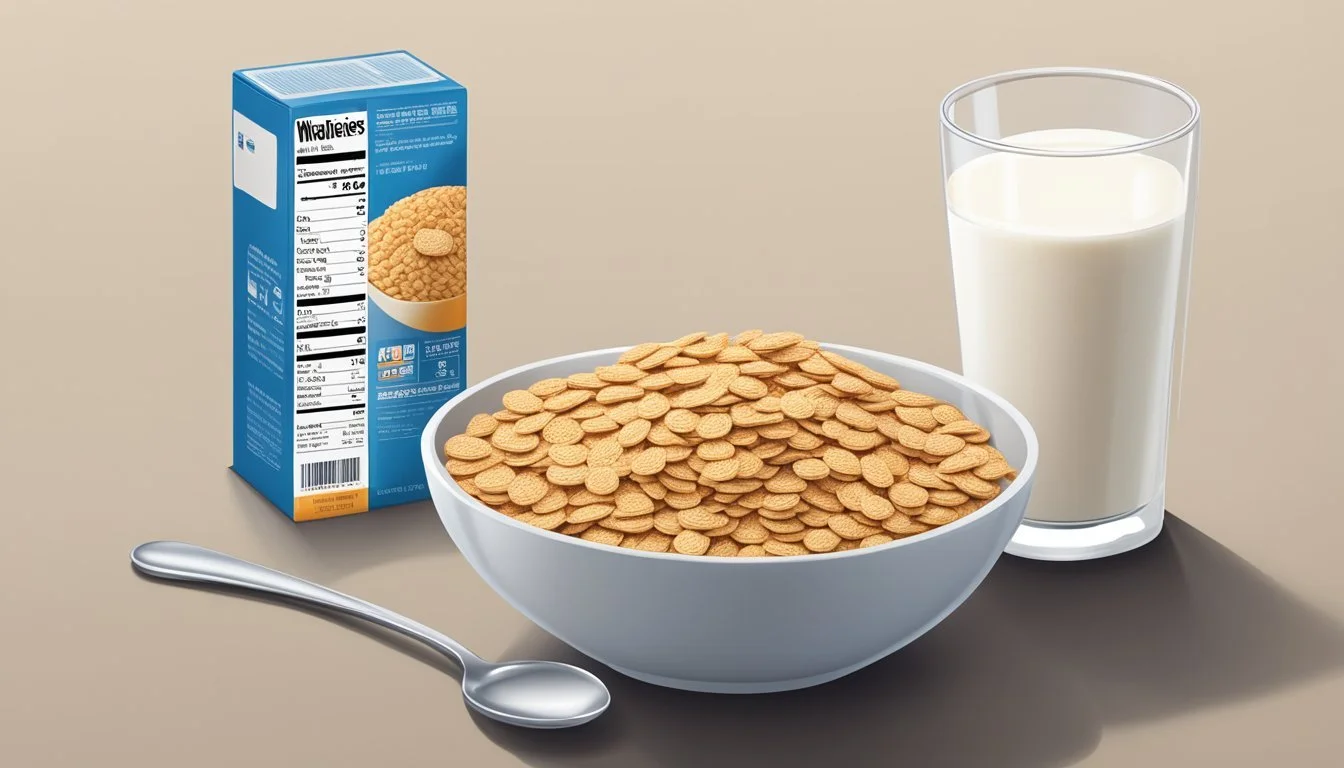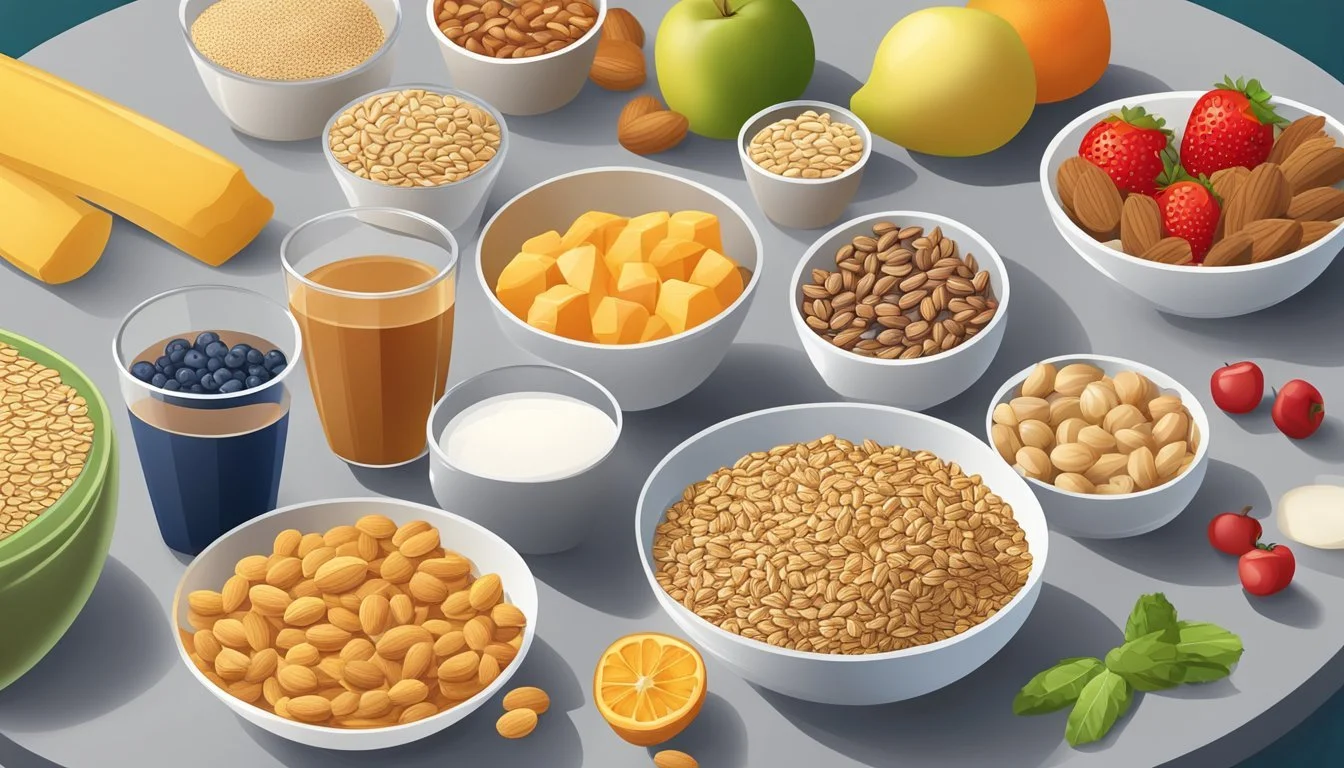Wheaties Nutrition Facts & More
Essential Facts About This Popular Breakfast Cereal
Wheaties has been a popular breakfast cereal for decades, gracing tables and fueling athletes across America. This General Mills staple boasts a simple yet nutritious profile that has stood the test of time. A single serving of Wheaties (1 cup or 36g) contains just 100 calories, with 22g of carbohydrates, 3g of protein, and less than 1g of fat.
The cereal's whole grain wheat base provides 4g of dietary fiber per serving, contributing to digestive health and feelings of fullness. Wheaties is also fortified with essential vitamins and minerals, including iron, zinc, and B vitamins. This nutrient boost makes it a practical choice for those looking to supplement their daily nutritional intake.
While Wheaties does contain added sugars, the amount is relatively modest compared to many other breakfast cereals on the market. Its low fat content and absence of cholesterol make it a heart-healthy option for those monitoring their cardiovascular health. The cereal's straightforward ingredient list and balanced nutritional profile have helped maintain its status as a breakfast staple for active individuals and families alike.
Nutritional Profile Overview
Wheaties cereal offers a balanced mix of essential nutrients in each serving. It provides a moderate amount of calories while delivering key vitamins, minerals, and macronutrients to support a healthy diet.
Caloric Content
A standard 1-cup (36g) serving of Wheaties contains approximately 127 calories. This modest calorie count makes it a suitable option for those managing their energy intake. The cereal's calorie content primarily comes from its carbohydrates, with minimal contributions from fats and proteins.
Macronutrients
Wheaties offers a carbohydrate-focused macronutrient profile. Each serving provides:
Total Carbohydrates: 22g (8% Daily Value)
Dietary Fiber: 3g
Sugars: 4g
Protein: 2g
Total Fat: 0.5g (1% Daily Value)
Saturated Fat: 0g
Trans Fat: 0g
The cereal is notably low in fat and free from cholesterol. Its fiber content supports digestive health, while the protein contributes to muscle maintenance.
Vitamins and Minerals
Wheaties is fortified with essential vitamins and minerals, making it a nutrient-dense breakfast option. Key micronutrients include:
Iron: 45% Daily Value
Zinc: 25% Daily Value
Vitamin B6: 25% Daily Value
Vitamin B12: 25% Daily Value
Folic Acid: 50% Daily Value
Vitamin A: 10% Daily Value
These nutrients play crucial roles in various bodily functions, including energy metabolism, immune support, and cell growth. The cereal's mineral content, particularly iron, makes it valuable for individuals seeking to boost their intake of these essential nutrients.
Health Considerations
Wheaties cereal provides several nutritional benefits but also has some potential drawbacks. Key factors to evaluate include its fat content, fiber and carbohydrates, as well as sodium and sugar levels.
Dietary Fats
Wheaties is a low-fat cereal option. A 1-cup (36g) serving contains only 0.5g of total fat, which is 1% of the Daily Value. The cereal contains no saturated fat, trans fat, or cholesterol.
This low fat content can be beneficial for those watching their fat intake or trying to maintain a healthy weight. The absence of saturated and trans fats is particularly positive, as these types of fats are associated with increased risk of heart disease when consumed in excess.
Dietary Fiber and Carbohydrates
Wheaties provides a moderate amount of dietary fiber. Each serving contains 2g of fiber, which contributes to daily fiber intake goals.
The cereal is primarily composed of carbohydrates, with 25g per serving. This includes both complex carbohydrates from whole grain wheat and simple carbohydrates from added sugars.
Fiber and complex carbohydrates can help:
Promote feelings of fullness
Support digestive health
Provide sustained energy
Sodium and Sugars
Wheaties contains 240mg of sodium per serving, which is 10% of the Daily Value. This amount may be a concern for individuals on sodium-restricted diets.
The cereal contains 5g of added sugars per serving. This includes both refined sugar and honey. While this amount is lower than many other breakfast cereals, it still contributes to daily sugar intake.
Limiting added sugars is recommended by health authorities to reduce risks of:
Weight gain
Tooth decay
Chronic diseases like diabetes
Those watching their sugar intake may want to be mindful of portion sizes or consider mixing Wheaties with unsweetened cereals.
Cereal Ingredients Analysis
Wheaties cereal contains a blend of whole grains, vitamins, and minerals. The ingredients and nutritional profile reflect its position as a popular breakfast choice for health-conscious consumers.
Whole Grain Composition
Whole grain wheat forms the primary ingredient in Wheaties. This provides a significant source of complex carbohydrates and dietary fiber. The wheat bran, an outer layer of the grain, contributes additional fiber and micronutrients.
Whole grains offer several health benefits, including improved digestion and potential reduction in heart disease risk. The fiber content helps promote feelings of fullness, which may aid in weight management.
Additives and Enrichments
Wheaties is enriched with various vitamins and minerals to enhance its nutritional value. These include:
Niacinamide (Vitamin B3)
Vitamin D3
Iron
Zinc
Salt is added to enhance flavor. The cereal also contains added sugars, though in moderate amounts compared to some other breakfast cereals.
Allergens and Dietary Restrictions
Wheat is the main allergen in Wheaties, making it unsuitable for individuals with wheat allergies or celiac disease. The cereal contains gluten and is not considered gluten-free.
For those following specific diets:
Vegan: Wheaties is generally considered vegan-friendly.
Kosher: The cereal is typically certified kosher.
Low-fat: With less than 1g of fat per serving, it fits into low-fat diets.
People with sodium restrictions should note the added salt content. Those monitoring sugar intake should be aware of the small amount of added sugars present in the cereal.
Comparative Analysis
Wheaties stands out among cereals due to its nutritional profile and fortification. This analysis examines how Wheaties compares to other popular cereals and explores its vitamin and mineral content.
Wheaties vs Other Cereals
Wheaties contains 19g of total carbohydrates per serving, which is comparable to many other breakfast cereals. It has 3g of sugar, significantly less than sugary options like Lucky Charms.
Protein content in Wheaties is 2g per serving, similar to Cheerios. This provides a modest protein boost to start the day.
Fat content is low at 0.5g per serving, with no saturated or trans fats. This aligns with many other whole grain cereals on the market.
Fiber content stands at 2g per serving, offering 8% of the daily value. While not the highest in fiber, it contributes to daily intake.
Fortification Levels
Wheaties is fortified with essential vitamins and minerals. It provides 17% of the daily value for Vitamin A, higher than many non-fortified cereals.
Iron content is notable at 11.99mg per serving, which is a substantial portion of daily needs. This makes Wheaties a good source of this important mineral.
Calcium fortification reaches 26.64mg per serving. While not as high as some calcium-fortified options, it contributes to daily calcium intake.
Vitamin C (8.0mg) and Vitamin D (1.33mcg) are also added, enhancing the cereal's nutritional value. These fortifications help Wheaties provide a more comprehensive nutrient profile compared to non-fortified cereals.
Consumption Tips
Optimizing your Wheaties consumption can enhance nutritional benefits and enjoyment. Proper serving sizes and strategic pairings can maximize the cereal's nutritional value.
Serving Recommendations
Start with the recommended serving size of 1 cup (36g) of Wheaties. This portion provides a balanced mix of nutrients without excess calories. Pour cold milk over the cereal for a classic breakfast. For variety, try almond milk to add nutty flavor and extra nutrients.
Mix Wheaties with yogurt and fresh fruit for a parfait-style meal. This combination boosts protein content and adds natural sweetness. Use Wheaties as a crunchy topping for smoothie bowls or oatmeal to increase fiber intake.
For a savory option, sprinkle Wheaties over salads as a healthier alternative to croutons. This adds texture and boosts whole grain content in your meal.
Nutritional Optimization
Pair Wheaties with protein sources to create a more balanced meal. Add a hard-boiled egg or a spoonful of nut butter to increase essential amino acids and promote satiety.
Boost fiber content by mixing Wheaties with high-fiber fruits like berries or sliced apples. This combination aids digestion and helps maintain steady blood sugar levels.
For additional nutrients, sprinkle chia seeds or ground flaxseed over your Wheaties. These superfoods add omega-3 fatty acids and extra fiber to your breakfast.
Control portion sizes by using a measuring cup. This ensures you're getting the intended nutritional benefits without overconsuming carbohydrates.
Cereal Branding and Production
Wheaties has become an iconic American cereal brand through strategic marketing and product development. General Mills has leveraged the cereal's association with sports and nutrition to create a lasting legacy.
General Mills Legacy
General Mills introduced Wheaties in 1924 as a wheat flake cereal. The brand quickly gained popularity and became known as "The Breakfast of Champions." This slogan, trademarked in 1935, cemented Wheaties' connection to athletics and healthy living.
General Mills has consistently featured prominent athletes on Wheaties boxes. This marketing strategy has helped maintain the cereal's relevance for decades. The company holds exclusive rights to the Wheaties name and associated trademarks.
Wheaties does not contain alcohol, caffeine, or theobromine. This makes it suitable for consumers of all ages seeking a nutritious breakfast option.
Product Variations
General Mills has expanded the Wheaties brand beyond its original wheat flakes. Variations include Wheaties Fuel, a higher-protein version aimed at active consumers. Honey Frosted Wheaties offers a sweeter option while maintaining the brand's nutritional focus.
Limited edition boxes featuring special athlete tributes have become collector's items. These releases generate excitement and boost sales periodically.
The company has also introduced Wheaties-branded protein powder and bars. This expansion leverages the cereal's reputation for nutrition in new product categories.
Dietary Considerations for Athletes
Athletes have unique nutritional needs to support their training, performance, and recovery. Proper nutrition plays a crucial role in maintaining energy levels, building muscle, and managing weight.
Energy and Muscle Maintenance
Athletes require higher caloric intake to fuel their intense physical activities. Carbohydrates are essential for energy provision, with 5-7 g/kg body weight recommended daily. Protein intake is critical for muscle repair and growth, with 1.2-2.0 g/kg body weight suggested per day.
Betaine, an amino acid derivative, may enhance muscle strength and power. Athletes can obtain it from foods like spinach and beets. Manganese, found in whole grains and nuts, supports energy metabolism and bone health.
Timing of nutrient intake is crucial. Consuming carbohydrates and protein within 30 minutes post-exercise aids recovery. Hydration is equally important, with athletes needing to drink water before, during, and after workouts.
Weight Management Strategies
Athletes often need to manage their weight for optimal performance. This requires balancing energy intake with expenditure. Reducing portion sizes and choosing nutrient-dense, low-calorie foods can help with weight loss.
Protein plays a key role in weight management by promoting satiety and preserving muscle mass during calorie restriction. Consuming 25-30 g of protein per meal is recommended.
Fat intake should not be excessively restricted, as it's essential for hormone production and nutrient absorption. Aim for 20-35% of total calories from healthy fats like avocados and nuts.
Regular monitoring of body composition, rather than just weight, provides a more accurate picture of an athlete's progress. This can be done through methods such as skinfold measurements or DEXA scans.
Consumer Information
Wheaties cereal provides essential nutrients as part of a balanced diet. The nutrition label offers key details about its contents, while proper storage ensures optimal freshness.
Understanding the Nutrition Label
Wheaties' nutrition label displays serving size, calories, and nutrient content. A typical 1-cup (36g) serving contains 130 calories. The label lists total fat, saturated fat, cholesterol, sodium, total carbohydrates, dietary fiber, sugars, and protein.
Daily Values (DV) on the label help consumers gauge nutrient levels. Wheaties is low in fat, with 0.5g per serving (1% DV). It provides 22g of total carbohydrates (8% DV) and 3g of dietary fiber (11% DV).
The cereal contains essential vitamins and minerals. It's fortified with B vitamins, including thiamin, riboflavin, niacin, and folate. Wheaties also provides iron, zinc, and vitamin D.
Purchasing and Storage
Wheaties is widely available in grocery stores and supermarkets. Look for it in the cereal aisle, often near other whole grain options.
To maintain freshness, store Wheaties in a cool, dry place. After opening, tightly seal the package or transfer cereal to an airtight container. This prevents moisture and preserves crispness.
Check the "best by" date on the package for optimal quality. While cereal can be consumed past this date, it may lose some freshness and nutritional value over time.
For bulk purchases, consider dividing cereal into smaller portions for storage. This minimizes air exposure and helps maintain texture and flavor.








